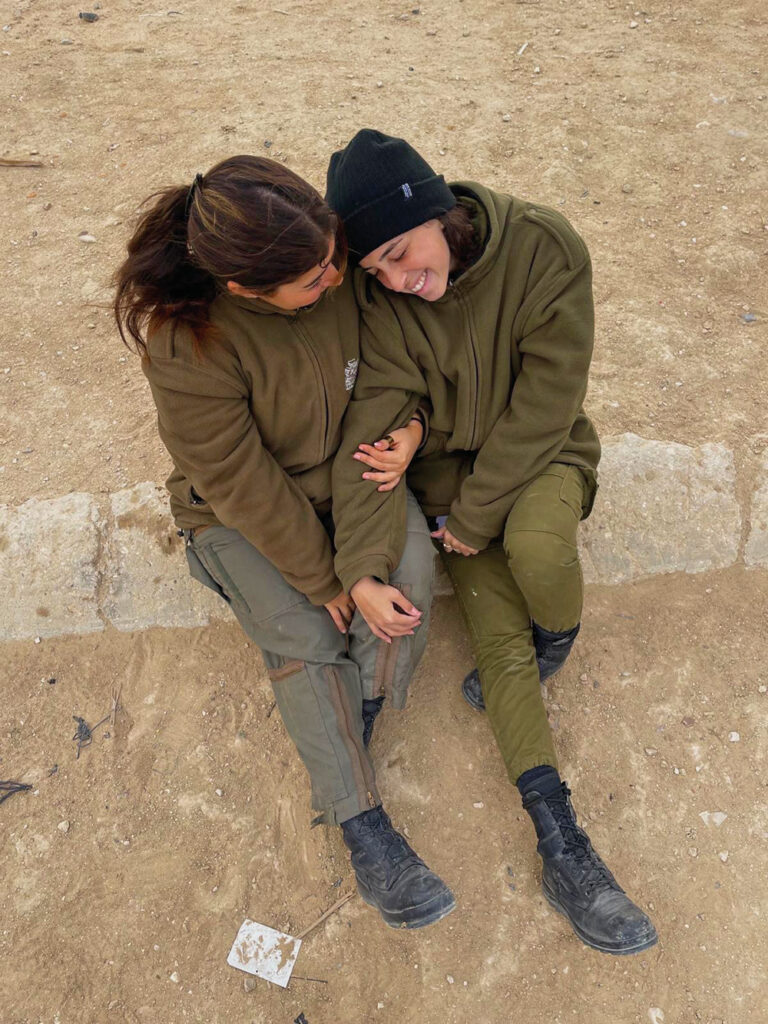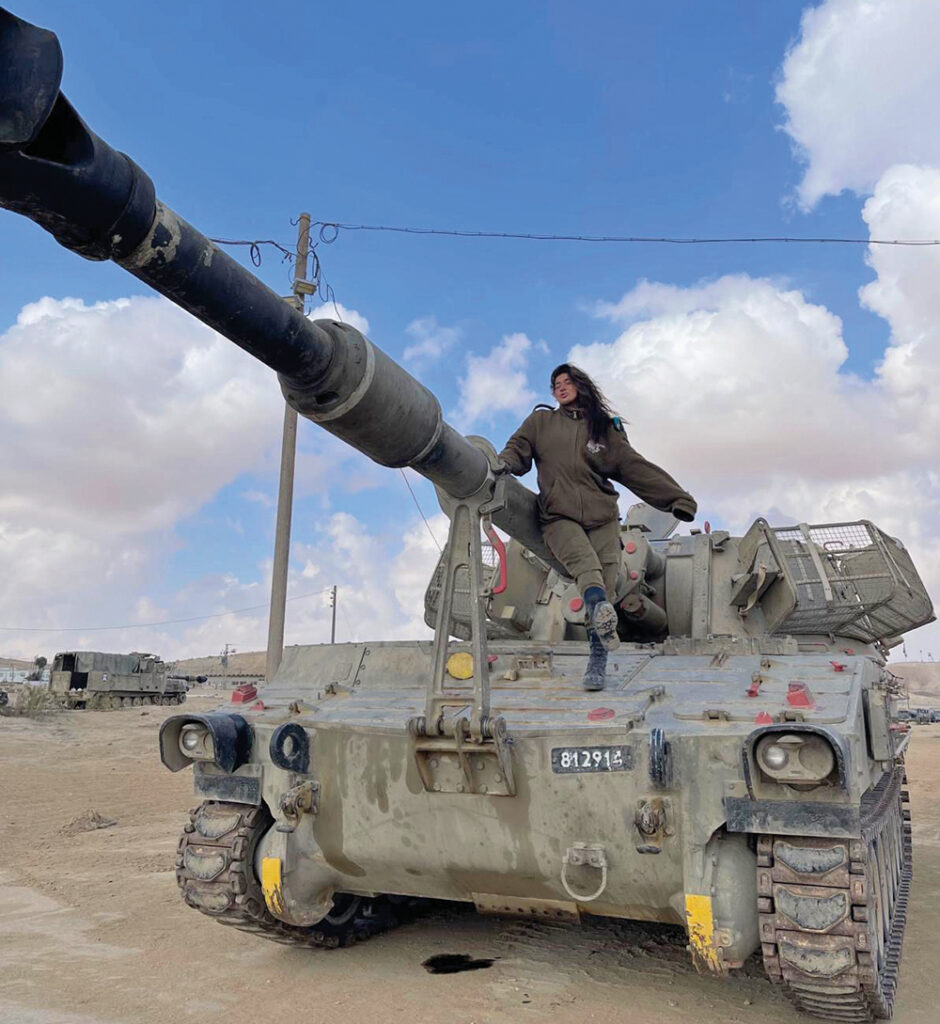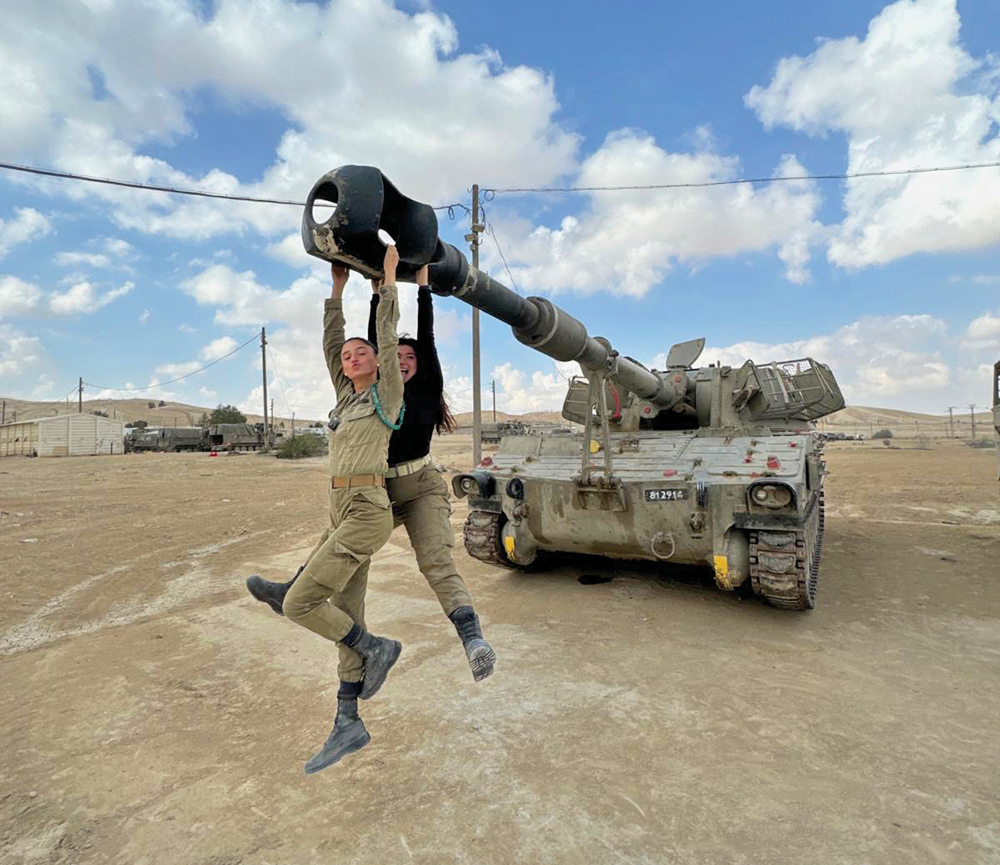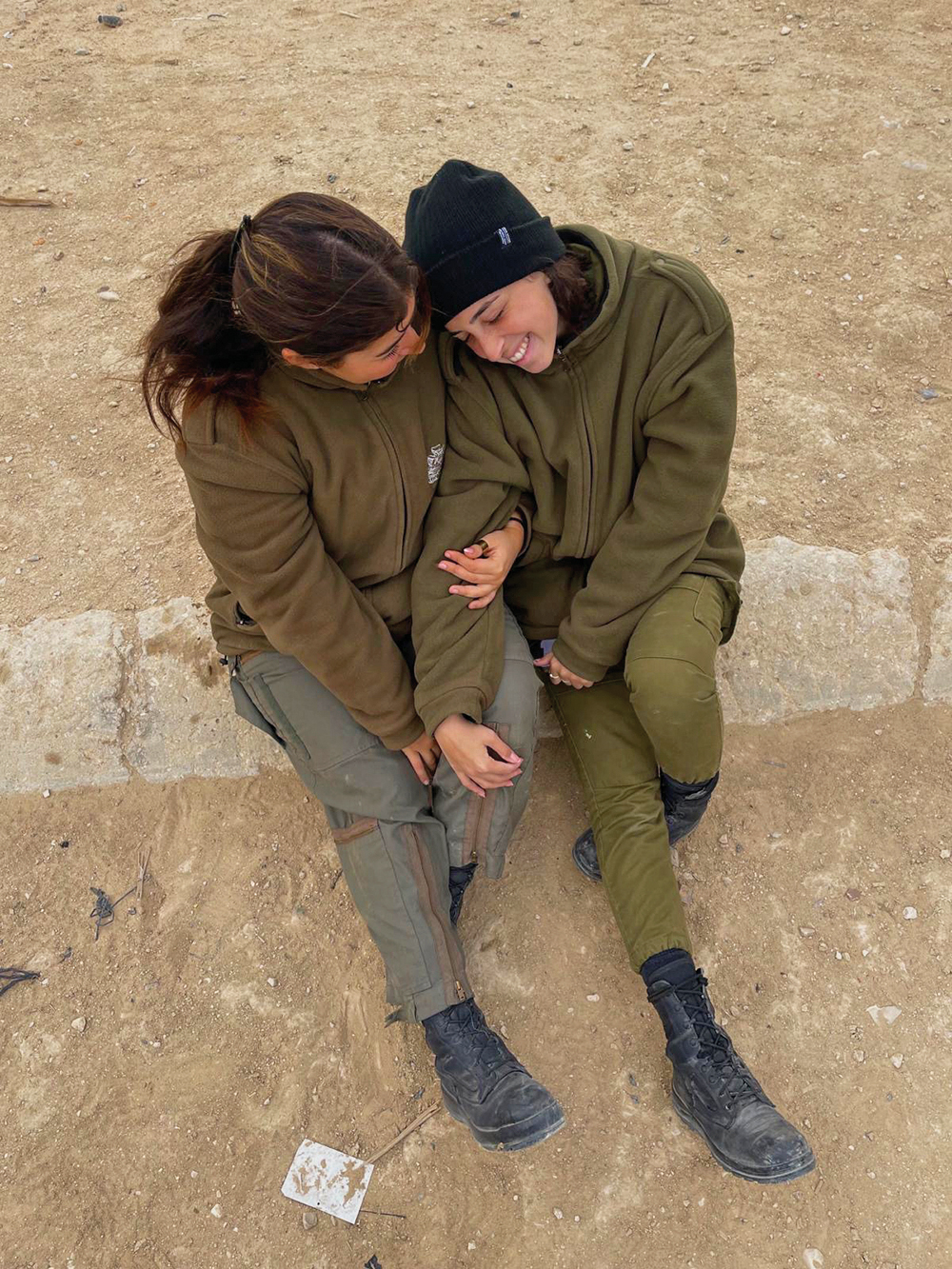
When Ayelet Abenaim left her Bergen County home for her year in Israel, she wasn’t entirely sure what she would be doing next, but knew she had to think of something. School hadn’t always been her thing, and neither was waking up in the morning to get there, and so the thought of going to college felt both stifling and daunting, bringing on a series of yawns. Still, she needed to have a plan.
Abenaim has always had a distinct presence in a group; she is someone who lives life according to her own rules, forges her own unique identity, and holds fast to the idea of her own individuality. Fitting herself into neat little labels was never simple for her. Which is why the idea of joining the IDF seemed quite antithetical to her very essence. The early mornings, the intense activity, the conformity, the humbling of the self — all things that were not quite in her vocabulary.
Abenaim’s idea of joining the IDF was initially met with a lot of resistance and it was this pushback, combined with her rebellious spirit, that fueled her desire to join even more. She had a need to prove to herself that she could do it, even though her capabilities were doubted, and it was this kernel of fire that kept her motivated during her darkest moments of exhaustion.
Picking up and leaving her comfortable home in New Jersey for a life in a shared room on an army base, a life of being told what to do all day long, where “No,” is never an option, may not seem like it’s an upgrade, but what Abenaim understood was that it was time to change from the environment in the United States. The option of going abroad to the army offered her a vista of expansiveness, a place where her basic needs would be met; she could shift away from the materialistic focuses of the world she knew, trading it in for a world of selflessness, a world in which for two years, her focus was never on herself. The opportunity for growth, to realign her values and purpose, was a definite upgrade, a very mature realization for a young girl. And she bid farewell to that part of her personality that was dominant for so long, embracing the idea that she was not always in control and that she was a cog in the wheel of a greater vehicle. That was valuable.

Abenaim also loves challenges and very much enjoys doing things she thinks she cannot. Because she drafted into the IDF and fought in the war, she realized that she can now do anything. The possibilities of her potential have expanded, but what’s more is that her own belief in herself has become limitless. She felt that along the way there were definitive moments of wanting to quit, but her ego kept her there, imagining all the looks of scrutiny she would receive, returning with defeat in her eyes. She wouldn’t let that happen.
Part of the process of army life is that one is completely humbled, flattened to a zero and then built back up again to a level of 100. In the beginning, as an oleh, Abenaim was required to take a Hebrew language immersion course as the most primary aspect of training. There were small challenges along the way, like sleeping outdoors for a night or two, but then the real process began when she started the second phase, training to become an artillery forces instructor.
Abenaim was required to be on base 28 days at a time, there were many nights of not sleeping (also called layla lavan), rigorous physical training, and hours of learning. She often felt like she was breaking down, unraveling thread by thread, but then there was the moment where things began to turn around, the process of building up of the self, the “I’m succeeding” feeling that started when a superior pulled her aside and said, “You did it,” after a long, rigorous hike up hills. It gave Abenaim strength to go on all the time, echoing in her head, reverberating with those very words and the sweetened taste of success on her tongue. The positive encouragement of a trusted superior had enabled her to shift her focus; it wasn’t the situation that had changed, nor the work or the hours she had to put in, but the way she now viewed them. Instead of, “I can’t,” it became, “I can and I am.” That began the steady trajectory of success, the slow progress of rebuilding her strength up to 100 percent.
Abenaim discovered that in order to survive the army and Israeli life in general, there was never time to sit and ruminate on problems and bad news that came your way. There is no opportunity to text friends for comfort, no therapy sessions, no day to chill in bed with a Netflix marathon to escape the pressures of life. The only option is to get up and deal with what lies before you, to be present on your mission, not in your head. Everyone has “stuff” going on at home or behind the scenes; but everyone is the same in the army, in identical uniforms, with the same schedules. There is no pardoning, no excuses for lateness or forgetfulness, or a period of sadness. There is only do, or don’t do, and face the consequences.
It was truly a challenge for Abenaim to get used to that mentality. In America, one falls down, cries or talks with people; the person spends some time healing then gets back up. But in the army, there is no time to lick their wounds. On the morning of Oct. 7, the soldiers were told that a friend from their troop was killed, and two minutes later, they were back out in training, forced to get up and keep moving, with no space for grief. Abenaim said, “It’s as if you have to put your feelings away in a refrigerator and open it later to deal with it. And that will be really hard, but everyone has a fridge. It’s the only way to survive.”

The proverbial refrigerator gets opened on Yom Hazikaron, the national day of commemoration for those who fell in battle. During her year in seminary, Abenaim didn’t quite connect with the day, wondering who actually knew of a fallen soldier. And again, the next year, while in service, she had similar sentiments, but she now realizes that there is not a single family who has gone untouched by the current situation, not a single person who won’t sit in unity during those moments, and the amount of grief that will permeate the day, leaking from all of the open refrigerators, will be chilling. The next day, the resilience will kick in and the nation will put one foot in front of the other, marching on. Individuals may fall in battle, people may fall in life, physically and emotionally, but Israel doesn’t let anyone stay down.
Abenaim, in her humility, did not want to be interviewed, claiming that she wasn’t special, is not a hero in any way, and was just doing the same thing as everyone else in Israel in the army. But that’s not true, because as much as she has learned to be the same, she is also so very different. Her personal life story, the giving up of being close to family and venturing out on her own and committing herself to a life of defending our nation feels heroic. She does not often recommend to others to join the army, but still, the sacrifices she has made, the growth she achieved from her service, and the bravery she exhibits on a daily basis while fighting in Gaza, is inspiring to all.
Abenaim shared that perhaps the biggest shift she felt was the change in perspective. She no longer gets upset or fearful over her former stumbling blocks, like talking to a stranger or asking someone for a favor. It has become the culture in Israel to respond to complaints with the word, “Baktanah” — it’s small, it’s nothing. The biggest trauma can happen and the response will be, “Kattan alayich,” this is small for you, and that the end of the story will show that things should be okay. Going through this national crisis makes everyone not petty and the war shows the strength of every person. The smaller things are swept away as each person focuses on what matters as a nation.
As Abenaim wraps up her last few weeks in the army, please keep her and her safety in mind in your prayers; pray for Ayelet Danielle bat Hila, and all of the soldiers, young and old, fighting the war for each and every one of us.
Sarah Abenaim is a writer, life coach, and journaling workshop curator who lives with her husband and kids. To be featured in one of her stories, please reach out to her at sarahabenaim@gmail.com or to David Siegel at djs.siegel@gmail.com. To learn more about how you can make an impact in the war effort, check out tinyurl.com/rinat-volunteeringinisrael.









